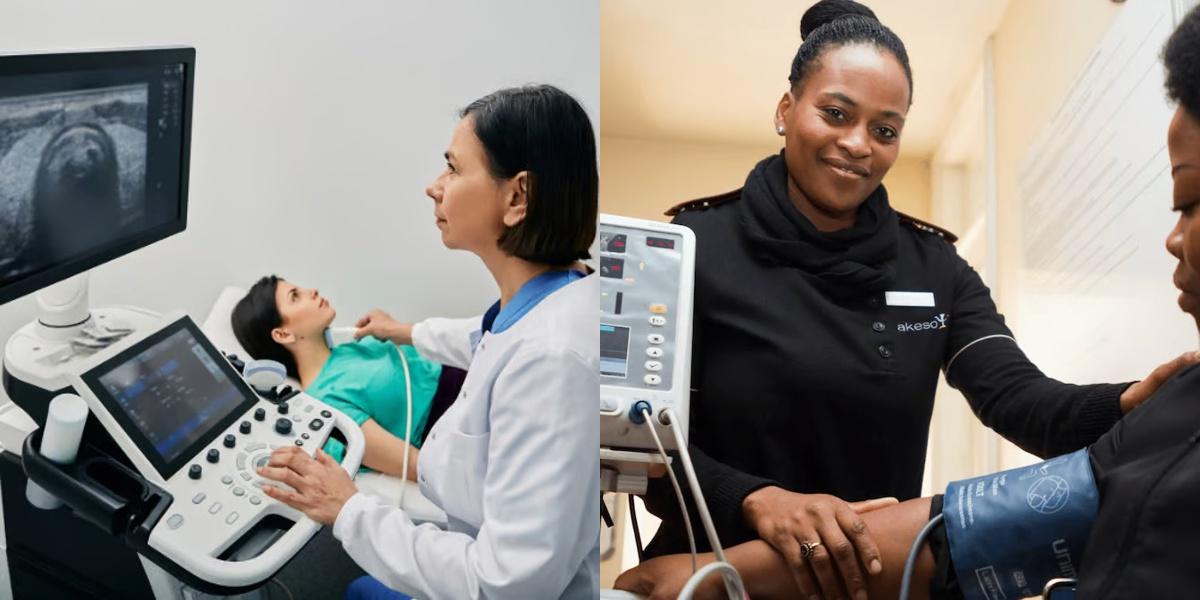Diagnostic Medical Sonographer vs Patient Care Technician

Key Points:
- Diagnostic Medical Sonographers operate medical imaging equipment; Patient Care Technicians provide basic patient care and assist nurses.
- Diagnostic Medical Sonographers typically earn higher salaries than Patient Care Technicians.
- Both fields have good job prospects.
- Diagnostic Medical Sonographers require a 2-year associate's degree, whereas Patient Care Technicians can often complete a certificate program.
- Diagnostic Medical Sonographer training is generally more expensive and takes longer than Patient Care Technician training.
The healthcare industry is experiencing rapid growth, and the demand for skilled professionals is on the rise. Diagnostic medical sonographers and patient care technicians are vital members of the healthcare team, but their roles and responsibilities differ significantly. By understanding the key differences between these two professions, you can determine which path aligns best with your interests and goals.
Diagnostic Medical Sonographer vs Patient Care Technician: Career Outlook and Salary
Diagnostic Medical Sonographer:
- Career Outlook: The demand for diagnostic medical sonographers is expected to grow rapidly in the coming years, driven by an aging population and increased reliance on diagnostic imaging. This growth is projected to create ample job opportunities for qualified sonographers.
- Salary: The median annual wage for diagnostic medical sonographers was $75,920 in May 2020, according to the Bureau of Labor Statistics. However, salaries can vary depending on factors such as experience, location, and specialization.
Patient Care Technician:
- Career Outlook: The demand for patient care technicians is also expected to grow, fueled by an aging population and the need for long-term care services. Job prospects in this field are generally favorable, especially for those with the appropriate training and certification.
- Salary: The median annual wage for nursing assistants, which includes patient care technicians, was $30,980 in May 2020, according to the Bureau of Labor Statistics. However, salaries can vary based on factors such as experience, location, and the type of healthcare facility.
Final Thoughts
Choosing a career in healthcare is an important decision, and understanding the differences between professions like diagnostic medical sonography and patient care technology can help you make an informed choice. Consider your interests, strengths, and long-term goals when deciding which path to pursue. Both professions offer rewarding opportunities to positively impact patients' lives and contribute to the healthcare field.
Dreambound provides programs in several locations. Get detailed information about these two vocations by checking:

Vduani Martinez is a part of the Growth team at Dreambound. She creates and fixes workflows and automation to guarantee seamless operations. On top of that, she manages databases to ensure all information is up to date. Vduani is a licensed Electronics Engineer who loves coffee and is a travel enthusiast. Out of the office, she enjoys going on road trips and discovering new cafes and restaurants.



